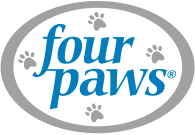4 Reasons Why Dog Poop Cleanup is Important
Cleaning up after your dog isn’t the most glamorous duty (see what we did there?), but have you considered what happens when you don’t clean it up? According to the LA Times, about 38% of people do not pick up their dog’s waste. If you are lax when it comes to cleaning up after your pup, these reasons should change your mind:
Reason #1: Dog Poop Isn’t a Fertilizer Like Cow Poop
We put cow manure on our crops to help them grow, so shouldn’t dog poop do the same for grass and flowers? Unfortunately, this is a common misconception about dog waste, and the reason lies in the animals’ diets: cows primarily eat grass and grain while dogs typically eat meat.
Because dogs eat more protein, their waste is highly acidic, contains pathogens and microbes, and leaves excess nutrients in places like our lakes and rivers, according to Erie.gov.
Dog waste also contains nitrogen, which explains why your grass can turn brown or yellow in spots. The best way to keep your lawn green is to promptly clean up after your dog, or at least on a weekly basis.
Reason #2: Dog Poop Can Affect Our Water

All animal waste affects our water, and dogs are no exception. However, with some mindfulness and diligence, we have the power to help lessen its impact!
Consider this chain reaction: first we don’t clean up dog poop from grass and sidewalks. Then it rains, snow melts, and the waste is washed away into storm drains. Out of sight, out of mind—right? Not quite. From there, fecal matter could wind up in lakes, streams, ponds, and other local water sources.
When this happens, poop decomposes and releases nutrients that cause excessive growth of algae and weeds. This makes the water murky, green, and smelly. In fact, the algae and weeds can get so overgrown that the water is no longer suitable for our favorite activities such as swimming, boating, and fishing, according to the University of Rhode Island.
In addition to nutrients, dog poop also contains pathogens, which are illness-causing bacteria such as E. coli and salmonella. If they end up in our drinking, swimming, and fishing water, everyone is affected, including humans, pets, and wildlife.
Reason #3: Cleaning Up Dog Poop is the Law
It's the law to clean up after your dog—and simply part of being a good neighbor! Many cities have enacted what is nicknamed the “pooper scooper law” and will fine dog owners who don’t pick up after their dog in a public place. If you’re in Madrid, one park will even box up your dog’s poop and mail it back to you, according to The Washington Post! Not all areas have gone to that extreme, but you can face fines into the thousands in many cities.
Reason #4: Cleaning Up Poop Makes Life Easier in the Long Run!
It can be a pain to pick up poop, but between its impact on nature and hefty fines, avoiding it can lead to even bigger problems. Cleaning up immediately after your dog makes life easier for you, your neighbors, and your dog! When you keep your yard clean, you have less of a chance of tracking unwanted messes and odors into your home and onto your carpet. Not to mention, cleaning up poop immediately can help prevent coprophagia in dogs because you’re removing the temptation for them to eat their own feces..
Backyard barbeques, running around barefoot in the park, outdoor picnics, and simply walking down the sidewalk are all easier and less messy when we pick up after our furry pals.
Tips for Cleaning Up Dog Poop

Now that you know why dog poop cleanup is so important, here are some quick tips on how you can help lessen the potential long-term environmental and health effects of waste.
Tip #1: Always Carry a Dog Waste Bag When Walking Your Dog
Carrying dog waste bags ensures you are always ready to remove your furry friend's waste and there are no surprises that you can’t clean up. Also, don’t be afraid to pick up another dog’s poop while you’re down there already.
Tip #2: Flush Waste When Possible
When you flush your pet’s poop down the toilet, it goes into the same wastewater treatment plant as human waste. The Environmental Protection Agency (EPA) recommends this as the best way to get rid of your pet’s waste, when possible, because the treatment plants are already set up to handle it. If you have a cat, be sure not to flush any waste with cat litter debris because it can cause plumbing issues.
Tip #3: Use a Pooper Scooper
Using a pooper scooper is not only convenient, but will help reduce animal waste’s side effects on the environment. Four Paws has an entire line of easy-to-use pooper scoopers that make cleaning up after your dog quick and simple—without bending and stooping!
Tip #4: Avoid Letting Your Dog Poop Near Water
When you are out with your dog, try to ensure they relieve themselves at least 200 feet away from water, especially if you forgot your cleanup bag. When your dog’s poop is this close to a body of water, it has a much higher chance of entering the water supply and negatively impacting our ecosystem. Also, never dispose of waste into storm drains.
Tip #5: Choose Higher Quality Dog Food
If you invest in higher quality food that contains fewer fillers and by-products, your dog will poop less, according to the Chicago Tribune. This is because the food is more nutrient rich, leading them to eat less and stay fuller for longer. Ultimately, you will have less poop to clean up!
Picking up poop may not be our favorite chore, but it’s an important one that helps us, our pets, and the planet. Not to mention, it is just plain courteous!










